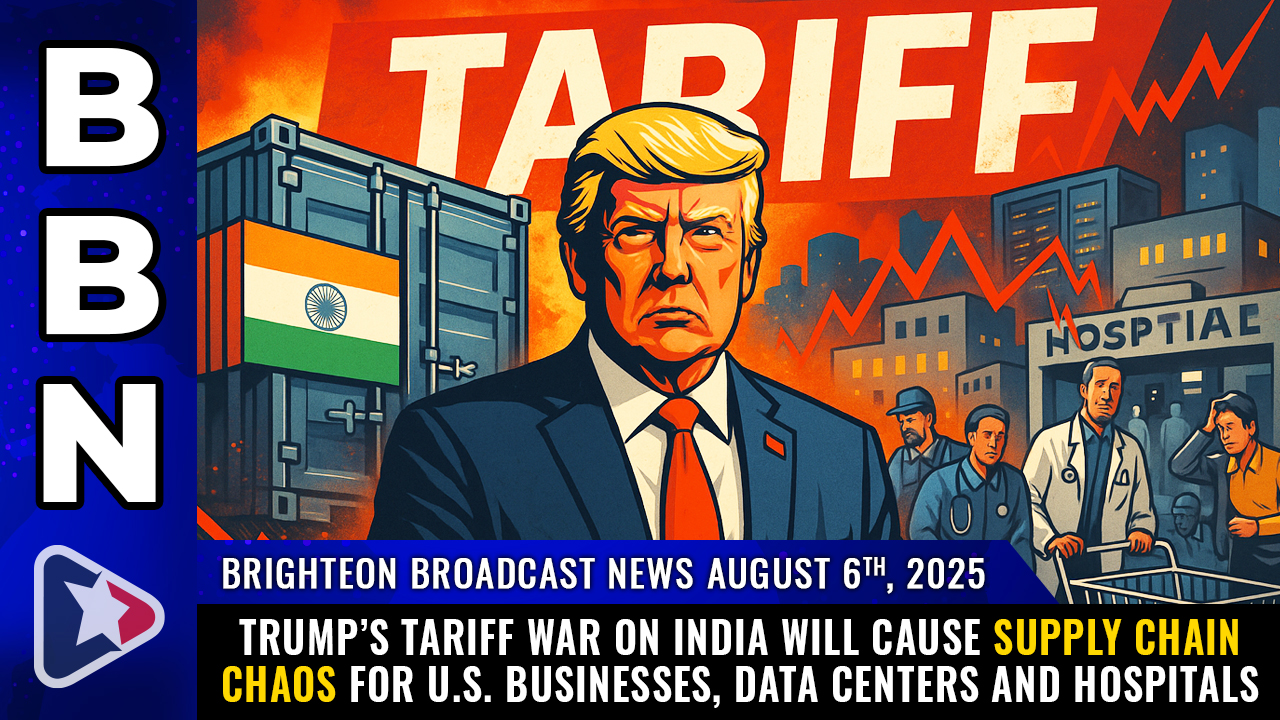 Parler
Parler Gab
Gab
- Germany's automotive industry faces a projected €10 billion ($11.53 billion) cash flow loss due to U.S. tariffs, with major automakers like Mercedes-Benz, Volkswagen and BMW seeing steep declines in profitability. Volkswagen alone reported over €1 billion in tariff-related losses in the first half of the year.
- The sector is already struggling with high energy costs, declining sales and competition from Chinese EV manufacturers, compounding the strain caused by tariffs. Suppliers are also passing on higher costs for raw materials, further squeezing automakers' margins.
- A July agreement lowered tariffs from 25 percent to 15 percent for most exports, including cars, but faced criticism as insufficient. German industry groups called it an "inadequate compromise," while EU officials decried the lack of meaningful U.S. concessions.
- Some automakers like Volvo and Volkswagen are relocating production to the U.S. (e.g., Volvo's XC60 SUV assembly shift to South Carolina) or investing in U.S. plants (e.g., Volkswagen's $2 billion Scout truck factory). Audi is also considering U.S. production for some models.
- German automakers are lobbying Washington for lower tariffs and urging Brussels to avoid retaliatory measures. Volkswagen's CEO emphasized the need for "rule-based trade, open markets, and stable trade relations" to mitigate further economic harm.
Lower tariffs not enough for German firms
In a bid to address these challenges, the European Union and the U.S. reached a deal on Sunday, July 27, setting a baseline 15 percent tariff on most exports, including cars. While this represents a reduction from the previous 25 percent tariff, it has sparked controversy across the EU. Some officials have criticized the agreement as "scandalous" and "a disaster," arguing that it fails to secure meaningful concessions from the United States. The German Federation of Industries labeled it an "inadequate compromise," though it acknowledged the tariff cut as the "only positive aspect." The decline of Germany's auto sector has fueled concerns about the health of the EU's largest manufacturing economy, which experienced a recession last year. The International Monetary Fund has forecasted zero growth for Germany's economy this year, predicting it will be the only G7 country to stagnate. In response to these challenges, some automakers are exploring strategic shifts. Volvo Cars, for instance, announced plans to move the assembly of its best-selling XC60 SUV to its plant in Charleston, South Carolina, to mitigate the impact of tariffs. Volkswagen, which operates a factory in Chattanooga, Tennessee, is investing $2 billion in a plant to produce an updated version of Scout trucks. The company is also considering moving the production of some Audi models to the United States. German automakers have been actively lobbying Washington for a reduction in the 25 percent auto tariffs. They have also urged the EU to refrain from imposing retaliatory measures on U.S. goods, arguing that such measures would doubly penalize them as they produce and export autos in both regions. Volkswagen CEO Oliver Blume expressed his hopes for a balanced outcome on the tariff issue during a call with analysts. "We are counting on the E.U. commission and the U.S. government to reach a balanced outcome on the tariff issue," he said. Blume emphasizing the importance of "rule-based trade, open markets, and stable trade relations." Visit SupplyChainWarning.com for more similar stories. Watch European Commission President Ursula von der Leyen voicing the EU's response to U.S. tariffs in this clip. This video is from the Cynthia's Pursuit of Truth channel on Brighteon.com.More related stories:
EU submits to 15% Trump tariffs in new U.S. trade deal. Trump announces 30% tariffs on imports from Mexico and EU. German car brand Audi halts U.S. vehicle deliveries amid Trump tariffs. Sources include: RT.com FT.com NYTimes.comICE applications surge to over 78,000 following passage of Trump’s “Big Beautiful Bill”
By Laura Harris // Share
Swiss president rushes to Washington amid tariff turmoil
By Belle Carter // Share
The Coming Gold Revaluation: Strategic Financial Realignment in an Era of Dollar Collapse
By Mike Adams // Share
Borrell slams EU’s complicity in Israeli war crimes, calls for action
By Zoey Sky // Share
Trump threatens tariffs on India amid Russian oil purchases, risking global trade fight
By Finn Heartley // Share
Governments continue to obscure COVID-19 vaccine data amid rising concerns over excess deaths
By patricklewis // Share
Tech giant Microsoft backs EXTINCTION with its support of carbon capture programs
By ramontomeydw // Share
Germany to resume arms exports to Israel despite repeated ceasefire violations
By isabelle // Share










